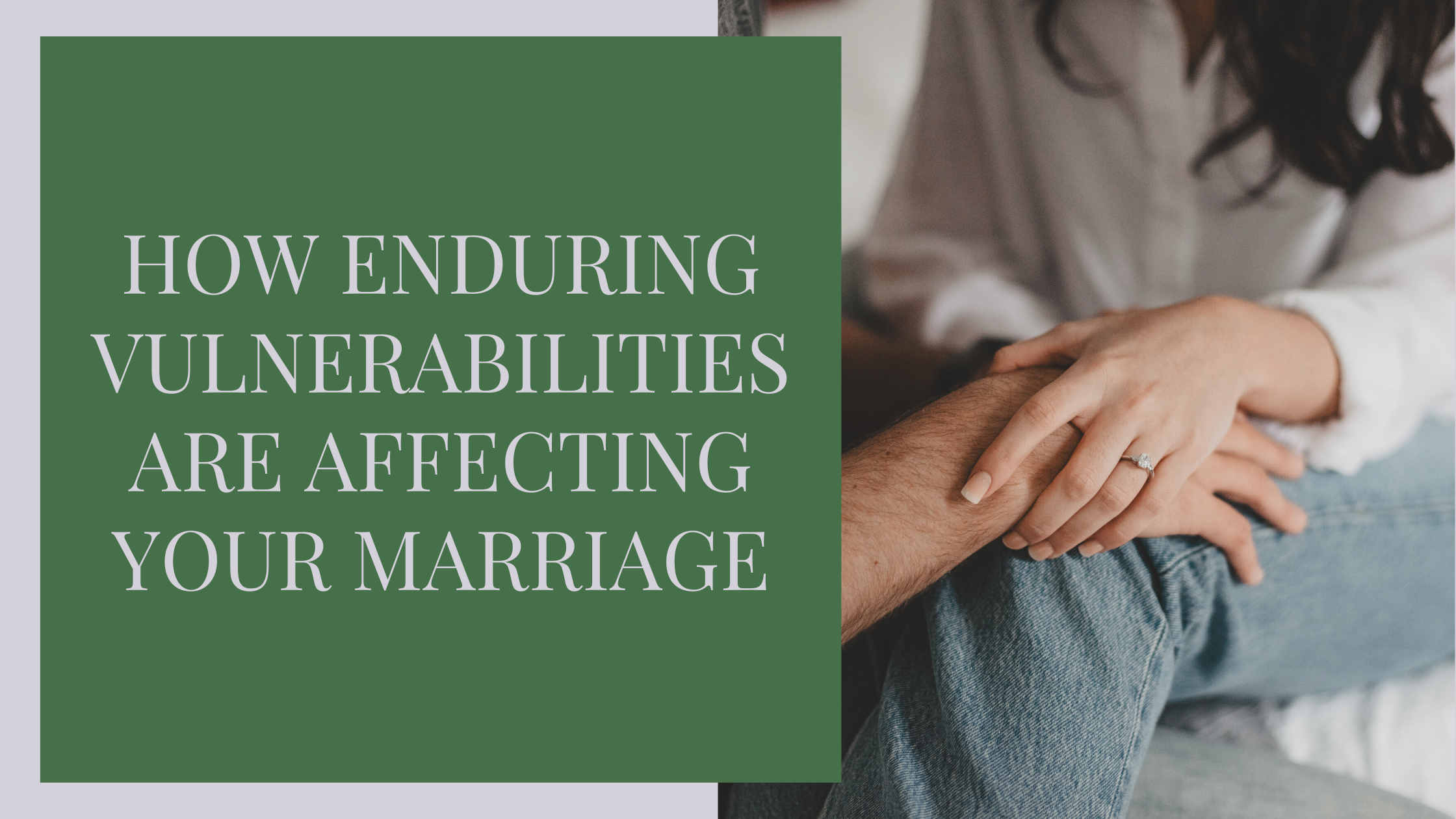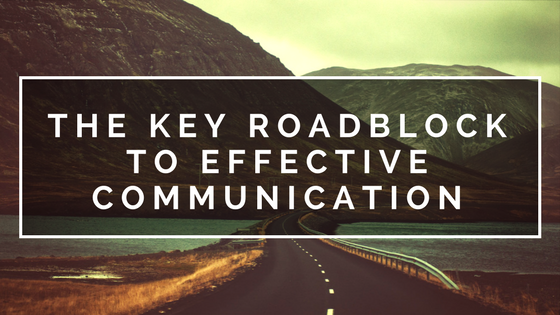Have you ever had an intense emotional reaction to something your spouse says or does, even though the situation doesn’t warrant it? If you haven’t noticed this in yourself, is this something you’ve seen happen in your partner while you’re in a disagreement?
What about when you get into an argument with your spouse, but later on, neither of you are able to remember how the argument began or what made you so angry in the first place? Often it can feel like it began over something silly that escalated out of control within minutes.
When your reaction to a situation in the present is intensified by experiences from the past, these signal that there may be an enduring vulnerability at play.
What are enduring vulnerabilities?
The term “enduring vulnerability” was coined by Thomas Bradbury and Benjamin Karney at UCLA. It references past experiences in relationships, your family-or-origin, or other traumas that have created a subconscious reaction within you to similar experiences in the present.
For example, a child who was frequently bullied about his or her weight may continue to feel heightened sensitivity around body image and weight into adult years. When their spouse suggests an exercise program to do together, the spouse with the enduring vulnerability around body image may have a strong emotional reaction of anger, fear, and shame.
Often these vulnerabilities stem from attachment wounds. Attachment wounds occur when a primary caregiver in your childhood was not a safe or secure base for you. You project those attachment wounds on your partner because they are now the closest attachment figure in your life.
Enduring vulnerabilities are unique to all people and are often the source of these unexpected emotional reactions. In order to understand how they impact you, you must practice self-reflection and awareness of the current situation in order to put them into context.
How do enduring vulnerabilities impact couples?
Major arguments that happen in relationships are often fueled by these enduring vulnerabilities. Something your spouse says or does reminds you of someone else or a past trauma, and you react as if you are right back in that trauma.
Sometimes, enduring vulnerabilities are worsened by actual harm done in your marriage. When your partner makes a critical or contemptuous comment to you, it can intensify an enduring vulnerability that already exists. If you have experienced betrayal in your marriage relationship, new vulnerabilities may form as your primary adult attachment figure now feels unsafe.
How can couples use enduring vulnerabilities to grow closer?
There is an upside to these enduring vulnerabilities, however. John Gottman, in his research on couples, recognized that arguments provide an opportunity for couples to grow in intimacy as they get to know one another’s enduring vulnerabilities. Understanding one another’s stories will allow you to increase your empathy in responding and caring for one another in your marriage.
Recognize them.
When you find yourself reacting strongly to an interaction with your spouse, take some time to self-reflect. What was the most challenging part of the conversation for you? Why do you think it was the most challenging? Ask yourself what the interaction reminded you of. What situations in the past may have set you up to feel the way you did?
Pay attention to the physical sensations that arose in your body, the emotions you were feeling, and the thoughts that were running through your mind. Let your mind float back to similar experiences in your life. These memories may be the key to uncovering why you responded so strongly to your partner’s actions or words.
Talk about them with your partner.
After some time has passed post-argument and tensions have lowered, share what you felt particularly sensitive to about that argument and how it relates to what you now know about your enduring vulnerabilities. Be sure to talk about your own experience using the talking formula rather than offering criticism or contempt about your spouse.
If your spouse is sharing their enduring vulnerabilities with you, listen to them. Ask open-ended questions to understand more of their story. Offer validation and empathy to show that you understand how what happened in the present must have been difficult for them, based on what they experienced in the past.
Conversations about enduring vulnerabilities can help you know one another more deeply and connect on a more significant level. They create a stronger sense of intimacy as you begin to know one another’s stories and experience empathy and understanding.
Create a plan for situations like these in the future.
As a couple, you can decide how you want to approach these enduring vulnerabilities when they inevitably arise in your relationship again.
It is important for the spouse who has the enduring vulnerability to take responsibility for their personal emotions, rather than blaming their reaction on their partner. It may require them to do their own work in counseling or elsewhere to identify when enduring vulnerabilities arise and options for changing their automatic reaction to them. This is especially important when that enduring vulnerability is impacted by a more serious mental health concern such as depression, PTSD, addiction, or others.
At the same time, the spouse who is not affected by that vulnerability can choose to adapt their approach in these conversations to lovingly support their spouse and avoid known triggers related to that vulnerability. For example, if one of your spouse’s enduring vulnerabilities comes from being called “stupid” frequently by a verbally abusive parent, you might intentionally avoid using that word to describe them or choose to affirm their competence in challenging situations.
In order to avoid codependency and attempts at mind-reading, have a conversation with your spouse about what would be supportive to them when they are experiencing an enduring vulnerability. Allow your spouse to make requests of what they would prefer, and consider if you are willing to offer support in that way.
Have patience with the process.
Understanding your own and your spouse’s enduring vulnerabilities is not an overnight process. It takes time to fully understand how your unique stories and past experiences play into your interactions with one another, and often there will be some trial-and-error before you find the best ways to support one another. Give yourself grace in this period of learning.
Know also that frequently couples have enduring vulnerabilities that intensify one another when they occur. For example, he feels hurt when she walks away from the conversation out of fear of abandonment, but she feels scared when he comes after her due to her past history of abuse. Recognizing and talking about these together can help you have more empathy for one another and grow into different approaches that work for your unique marriage.















